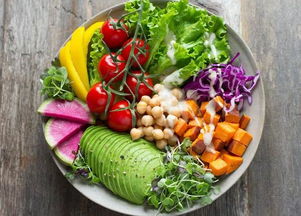排骨炖冬瓜最好的做法
10 MustTry Delicacies from Around the World
1.
Sushi (Japan)
Origin:
Japan
Characteristics:
Fresh seafood (like tuna, salmon, and shrimp) served on vinegared rice, often accompanied by wasabi and soy sauce.
Eating Method:
Typically eaten with chopsticks, dipped lightly in soy sauce and wasabi.
Why Try:
Sushi showcases the delicate flavors of fresh fish and the artistry of Japanese culinary techniques.2.
Pasta Carbonara (Italy)
Origin:
Italy (Rome)
Characteristics:
Pasta (usually spaghetti) tossed with a sauce made from eggs, cheese (usually Pecorino Romano), pancetta, and black pepper.
Eating Method:
Best enjoyed hot, mixing the creamy sauce with the pasta immediately before eating.
Why Try:
It exemplifies Italian simplicity and the rich, comforting flavors of egg and cheese combined with pasta.3.
Tacos al Pastor (Mexico)
Origin:
Mexico (influenced by Lebanese cuisine)
Characteristics:
Marinated pork cooked on a vertical spit (trompo), served on small corn tortillas with pineapple, cilantro, and onion.
Eating Method:
Folded or rolled up and eaten by hand, often with a squeeze of lime.
Why Try:
The combination of savory, spicy pork with sweet pineapple creates a burst of flavors that defines Mexican street food.4.
Pad Thai (Thailand)
Origin:
Thailand
Characteristics:
Stirfried rice noodles with eggs, tofu, shrimp or chicken, bean sprouts, peanuts, and a tangy sauce.
Eating Method:
Served with lime wedges and chili flakes for customization of flavors.
Why Try:
Balances sweet, sour, salty, and spicy flavors typical of Thai cuisine in a satisfying noodle dish.5.
Paella (Spain)
Origin:
Spain (Valencia)
Characteristics:
Saffroninfused rice cooked with a variety of seafood, chicken, rabbit, and/or vegetables in a large, shallow pan.
Eating Method:
Traditionally eaten directly from the pan with a wooden spoon.
Why Try:
It highlights Spain's use of rice and seafood, offering a communal dining experience with complex flavors.6.
Peking Duck (China)
Origin:
China (Beijing)
Characteristics:
Crispy duck skin served with thin pancakes, hoisin sauce, and thinly sliced cucumbers and scallions.
Eating Method:
Assemble by spreading hoisin sauce on the pancake, adding duck, vegetables, and rolling it up.
Why Try:
Known for its crispy texture and savorysweet flavors, Peking Duck is a symbol of Chinese culinary mastery.7.
Croissant (France)
Origin:
France (influenced by Austrian cuisine)
Characteristics:
Buttery, flaky pastry made from layers of dough and butter, usually enjoyed at breakfast or as a snack.
Eating Method:
Best served fresh and eaten as is or with jam.
Why Try:
A quintessential French pastry that showcases mastery of dough lamination and buttery indulgence.8.
BBQ Ribs (United States)
Origin:
United States (Southern cuisine)
Characteristics:
Pork or beef ribs slowcooked and basted with barbecue sauce, resulting in tender, flavorful meat.
Eating Method:
Usually eaten with hands, often accompanied by coleslaw and cornbread.
Why Try:
Represents American BBQ culture, with each region offering its unique take on rubs, sauces, and smoking techniques.9.
Pho (Vietnam)
Origin:
Vietnam (French colonial influence)
Characteristics:
Clear broth with rice noodles, herbs (such as basil and cilantro), and either beef (pho bo) or chicken (pho ga).
Eating Method:
Customize with lime, bean sprouts, chili peppers, and hoisin or sriracha sauce.
Why Try:
Complex flavors of the broth combined with fresh herbs and spices, representing Vietnamese culinary tradition.10.
Gelato (Italy)
Origin:
Italy
Characteristics:
Smooth and creamy frozen dessert made with milk, cream, sugar, and various flavors (like chocolate, fruit, or nut).
Eating Method:
Scooped and served in a cone or cup.
Why Try:
Offers intense flavors and a dense texture compared to ice cream, showcasing Italian expertise in dairybased desserts.These dishes not only provide a diverse range of flavors and culinary techniques but also offer a glimpse into the cultural heritage and traditions of their respective countries. Enjoying them ensures a delightful journey through global cuisine, making any travel experience richer and more memorable.
免责声明:本网站部分内容由用户自行上传,若侵犯了您的权益,请联系我们处理,谢谢!联系QQ:2760375052











